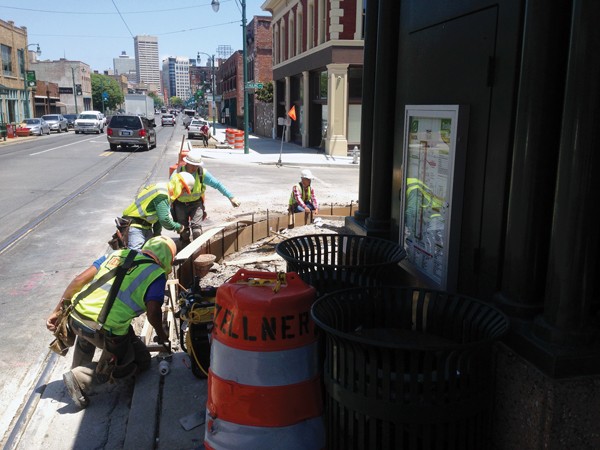
Memphis City Council members hope to replace the months-long moratorium on enforcing sidewalk repair laws with a program to help low-income households fix their sidewalks.
Sidewalk repair is the responsibility of Memphis property owners. That fact is thanks to a city law passed in 1967 that says owners of property abutting any public street are “required to provide and maintain adjacent to his or her property a sidewalk.”
City officials began to aggressively enforce this law last year, telling homeowners to fix their sidewalks or be ordered to court. But council members instituted a moratorium on the enforcement, and has extended the moratorium to the present.
But city engineer John Cameron brought council a proposal Tuesday to help some Memphis families to pay for the costs of fixing their sidewalks.
That plan would offer financial assistance for sidewalk repair to homeowners (not renters, or owners of multiple properties) who make less than $25,000 per year, are 65 or older, or are 100 percent disabled. It would also be offered to households that fall below the federal poverty line.
Cameron said the program would cost $200,000 this fiscal year to help address the sidewalks of the 400 properties that now have outstanding notifications. Next year, he projected the program would cost between $200,000 and $500,000. The total project could cost between $6 million and $9 million, Cameron said.
The assistance plan was the first of two parts of Cameron’s strategic program to fix Memphis sidewalks.
He also wants to start proactively fixing sidewalks around Memphis in what could be a $200 million project. The plan would done in 10 waves, each costing about $20 million, he said.
“It’s a significant amount of money,” Cameron said. “But it gives us a context on how to address our priorities for sidewalks.”
He’d start on sidewalks around schools and hospitals, constitute about 18 percent of the city’s total sidewalk stock.
The moratorium was proposed last year by council member Harold Collins, who didn’t like that low-income or fixed-income residents were being ordered to court. He said Tuesday that he didn’t want to lift the moratorium until the assistance program is in place.